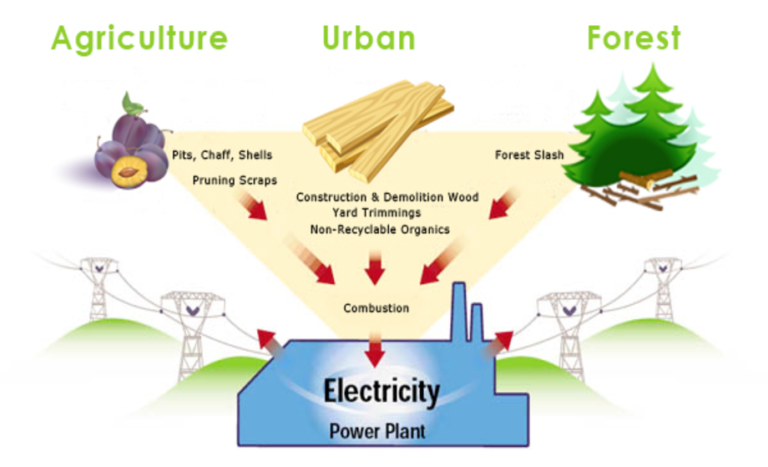what type of energy does biomass produce
Reasons Why Biomass Energy Should Be a Top Choice
Biomass energy is gaining popularity as a renewable energy source due to its numerous benefits. In this article, we will explore the reasons why biomass energy should be considered a top choice for sustainable energy production. Let's delve into some frequently asked questions on this topic:
1. What is biomass energy?

Biomass energy is a form of renewable energy derived from organic materials, such as plants, agricultural waste, wood pellets, and animal manure. These organic materials are converted into energy through various processes like combustion, gasification, or anaerobic digestion.
- Biomass energy helps reduce greenhouse gas emissions and dependence on fossil fuels.
- It can be sustainably sourced from agricultural and forestry residues.
- Biomass energy promotes waste-to-energy conversion, reducing the volume of organic waste in landfills.
- It provides reliable baseload power and can be stored for use during peak demand.
2. What are the environmental benefits of biomass energy?

Biomass energy offers several environmental advantages:
- Reduces greenhouse gas emissions compared to fossil fuel combustion.
- Helps mitigate climate change by utilizing carbon-neutral or carbon-negative feedstocks.
- Provides a sustainable alternative to fossil fuels, reducing dependence on finite resources.
- Supports land management practices by utilizing agricultural and forestry residues.
3. How is biomass energy generated?
Biomass energy can be generated through various processes:
- Combustion: Organic materials are burned to produce heat, which is converted into electricity or used for heating purposes.
- Gasification: Organic materials are partially oxidized to produce a mixture of carbon monoxide, hydrogen, and methane, which can be used for electricity generation or converted into biofuels.
- Anaerobic digestion: Microorganisms break down organic materials in the absence of oxygen, producing biogas that can be used for electricity and heat generation.
4. Is biomass energy sustainable?
Biomass energy can be sustainable if proper practices are followed:
- Use of agricultural and forestry residues reduces reliance on dedicated energy crops.
- Implementing sustainable forestry practices ensures a continuous supply of feedstock without damaging ecosystems.
- Promoting efficient conversion technologies minimizes waste and maximizes energy output.
5. What are the challenges of biomass energy?
While biomass energy offers numerous benefits, it also faces some challenges:
- Availability of feedstock can be influenced by seasonal variations.
- Transportation costs of bulky feedstock may impact the economic viability of biomass energy.
- Efficient conversion technologies require continuous research and development.
- Ensuring emissions from biomass combustion are minimized requires proper monitoring and regulation.
6. How does biomass energy contribute to waste management?
Biomass energy plays a crucial role in waste management:
- Organic waste, such as agricultural residues and food scraps, can be converted into energy, reducing the volume of waste in landfills.
- Landfill gas, a byproduct of decomposing organic waste, can be captured and used as a renewable energy source.
- Combined heat and power systems utilize waste heat generated during biomass energy production, maximizing energy efficiency.
7. Can biomass energy be used for transportation?
Biomass energy can be converted into biofuels for transportation:
- Bioethanol: Biomass, such as corn or sugarcane, is fermented to produce ethanol, which can be blended with gasoline.
- Biodiesel: Vegetable oils or animal fats are chemically reacted with alcohol to produce biodiesel, a renewable alternative to diesel fuel.
- Biogas: Biomethane from anaerobic digestion can be used as a transportation fuel.
8. What role does biomass energy play in rural development?
Biomass energy offers several benefits for rural development:
- Provides decentralized energy solutions, reducing dependency on centralized power grids.
- Engages local communities in biomass production and processing, generating employment opportunities.
- Supports agriculture and forestry sectors, creating synergies between biomass feedstock production and energy generation.
9. Can biomass energy replace fossil fuels?
Biomass energy can be a viable alternative to fossil fuels, but complete replacement has challenges:
- Bioenergy can contribute significantly to energy diversification and reduction of fossil fuel use.
- Technological advancements and research in biomass conversion can improve efficiency and competitiveness.
- A diversified energy portfolio combining biomass, solar, wind, and other renewable sources is recommended for a sustainable future.
10. How does biomass energy contribute to energy security?
Biomass energy enhances energy security through:
- Domestic production: Biomass feedstocks can be grown locally, reducing dependence on imported fossil fuels.
- Diversification: Including biomass in the energy mix reduces reliance on a single energy source.
- Baseload power: Biomass energy can provide stable and reliable power, supplementing intermittent renewable sources like solar and wind.
11. Does biomass energy have any economic benefits?
Biomass energy offers potential economic benefits:
- Local job creation in biomass production, harvesting, and processing.
- Revenue generation from the sale of excess electricity and heat.
- Lower energy costs for industries located near biomass power plants.
- Economic diversification in rural areas through biomass feedstock production and processing.
12. How can individuals contribute to biomass energy adoption?
Individuals can contribute to the adoption of biomass energy in several ways:
- Opt for biomass-derived heating systems for homes and businesses.
- Support policies favoring renewable energy and biomass technologies.
- Properly dispose of organic waste to contribute to waste-to-energy projects.
- Educate others about the benefits of biomass energy and its role in sustainable development.
In conclusion, biomass energy holds great promise as a sustainable and renewable energy source. Its numerous environmental, economic, and social benefits make it a top contender for a greener future. However, it is essential to ensure sustainable sourcing, efficient conversion technologies, and proper regulatory frameworks to maximize biomass energy's potential.